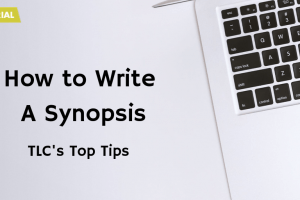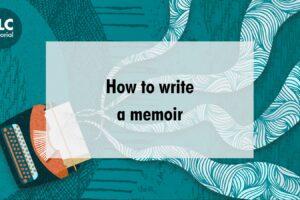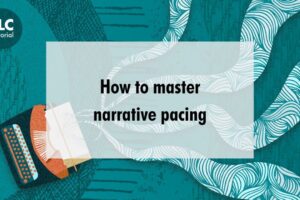Top Tips from TLC Director Aki Schilz
Generally, writers tend to find synopses challenging. It’s incredibly difficult when you’ve lived, breathed and dreamed a story for months, sometimes years, to then distil it into a pithy one-page document, which is what literary agents are most often looking for. The search term ‘How to Write A Synopsis’ has (rather astonishingly) almost a billion hits on Google.
I actually tend to think there’s a little too much focus on one-page snippets of writers’ writing lives, and that this can muddle things. We obsess, as an industry, over the ‘Dear Agent’ letter, the Synopsis, and The First Page. Whole workshops are dedicated to The First Page. But who wants a brilliant first page, and then another 150 pages of mess?
Still, it can be helpful, even if you aren’t yet ready to submit to a literary agent (or don’t intend to), to work on your Synopsis. It can really help you to clarify the INTENTION of your writing, as well as articulating the STORY, and the PLOT. There is, of course, no one size fits all approach, but these five top tips are based on our work with around 600 writers each year through our Manuscript Assessment and Submission Package Report services, bearing in mind common areas of difficulty or anxiety. I hope they might therefore be helpful. Do feel free to leave comments if you have your own tips you’d like to add!
TIP ONE: Do The Thing First
The Thing is the novel.
You may have written some kind of attempt at a story outline at the point of starting to write. My advice would be to start over once you have finished a draft. The book will have evolved, and so will you, as a writer, since that initial outline. It can be much easier to start with a blank page than try to edit a document you are over-familiar with. You’ll just get stuck in the detail. You need to think Big Picture. This requires a little breathing space from the work, to establish a sense of objectivity.
Once you have some distance, you will start to see the work not as the writer, but as a reader. This is often optimal editing mode. It’s also the moment you’re ready to tackle The Synopsis.
TIP TWO: Write a Three-Line Summary
We often talk about a one-sentence pitch, but this is predicated on there being a clear and obvious ‘hook’. Yes, some books lend themselves brilliantly to the one-line pitch (the famous example being ‘Jaws in Space’, supposedly the way Alien was described by its screenwriters, winning them a major film contract), but here’s a big publishing secret: not all books have a hook, and that’s perfectly fine. I much prefer the three-line summary as a basis for building your one-page synopsis.
No two books are the same, of course. But in very general terms, what all good novels should have, is a clear sense of…
- What happens (PLOT),
- to whom (CHARACTER), and
- why should we care? (STORY)
These three things don’t have to appear in that order in your three-line summary, but if you cover them all off, you’re probably going to come up with something that really delivers on what the book is about. This is the pitch your agent will use to woo an editor, who will in turn need to woo their wider team at the publishing house (from marketing to sales and publicity), who will need to woo booksellers, who will need to woo readers. This is why it’s important to have a pithy summary in your back pocket.
TIP THREE: The 250 Word Challenge
Try writing your synopsis in just 250 words.
If you just fainted, let me tell you a story first, then we’ll get back to the 250 words.
The last synopsis I worked on was initially sent to TLC as a 2,200 word document, plus a 1,400 word chapter by chapter outline. Unless you are asked for one, if you are writing a novel, you don’t need a chapter outline. Chapter outlines are usually reserved for non-fiction proposals where only part of the manuscript is written upfront, with the rest merely summarised, so that an agent or publisher can see what you are trying to do with the book before deciding whether to commission you, kick-starting the process of completing the material. Where chapter outlines are useful for fiction writers is in the drafting stage, to help you lay out the story, and make sure that the overall shape and structure is sound.
Back to my writer, the one with the 2,200 word synopsis. They came back with a new synopsis following TLC feedback, this time 500 words, consisting of 75 words under the heading ‘Premise’, and 425 words under the heading ‘Plot’. I quite like this structure, as it covers both the story (the emotional beating heart) and the plot (the more mechanical, causal structures at work in a novel). BOTH need to work in tandem in the synopsis, because BOTH should be working in tandem in your book. Often, we see synopses that have much more of one than the other, and that imbalance can throw the entire thing off. The 500 words were good, but not quite right yet. So, I decided to re-work the synopsis, using only 250 words.
HINT: When agents say ‘one page’ in their submission guidelines, they generally mean no longer than 500 words. You don’t have to double space your synopsis, but it should all fit on one page in a legible 12-point font. If you split your synopsis into paragraphs, you can comfortably aim for somewhere around 250-300 words, and it should fit nicely on one side.
With only one page, you want maximum impact in the fewest words possible. Don’t hide the key details, carve them out of stone. If the mother character is significant, give her one powerful introductory line, not three. Give us the outline of the main plot, and perhaps one significant subsidiary plotline for texture, but leave the other threads for the book. We need to feel the throbbing of the engine of the book here, in these couple of hundred words. It’s an exercise in concision, and this proves your skill as a writer to the agent, who will need to feel they are in the hands of a writer who can really deliver a story. If you hold back so much that we have no idea what’s going on, or over-write so that we are swimming in blow by blow detail with no way of knowing which parts are important, you won’t fill an agent with confidence.
Your one page should tell us, immediately and perhaps even in this order…
- WHERE we are (in place and time)
- WHO the main players are (protagonist/antagonist and key characters only)
- WHAT is happening to these main players (following the plot’s causal structure)
- WHY this is important (wider thematic importance)
- And, critically, what will have CHANGED by the end of the book (the ‘narrative arc’)
Your final version might end up at 300 words, 400, even 500. But if you start here, with a 250-word restriction, you are more likely to end up with something that feels like a brilliant, energetic concentration of the best bits of your book. If you give yourself slack to begin with, you’ll lose that sense of urgency and the document will quickly feel listless. Ultimately, you want a reader to feel compelled to read your book. That feeling will also be driven by the conviction with which you write. So be confident. Because if you don’t have absolute faith in your book, how can you ask a reader to?
TIP FOUR: Don’t Ignore the Small Voice
It’s easy to confuse the nagging voice of instinct for the whispering demon of doubt. Doubt needs dispelling to be able to write, and complete, your book, your synopsis – anything, really. Vive the superego! But if you do find you are really, really struggling with your synopsis – it just doesn’t fit, the proportions aren’t right, you can’t get the details onto one page – do try to be honest with yourself about what this says about your book.
Are there too many sub-plots? Too large a cast of characters? Is it unclear who the main story is about? Sometimes trouble with synopsis writing (sorry, but experience tells me this is true) signals trouble with the book… If this is the case, you might need to have a proper sit-down chat with yourself about why you’re writing this, why it’s important TO YOU, and what you think is going on with it that isn’t quite working. Don’t ignore your gut.
TIP FIVE: Style it out
You have (presumably) edited your book over and over, really honed and polished it. You should afford your synopsis the same care and attention. And the fun thing is that editing a synopsis is where you can get creative. You have the distillation of the plot, the impact of story, the brilliant one-page summary down. Now think, does it reflect the tone of the book? If not, how can you make tiny, but significant changes to ensure it does?
First, sense-check it. I quite like this basic template:
INTRO: Your three-sentence pitch
MAIN BODY: 250 words of Plot
OUTRO: Two or three lines about Themes (This is a story about X)
Try to avoid gumpf like ‘this is an incisively written debut, powerful in its impact and sure to have a long-lasting impact on the reader’. Not only is this pompous, it means absolutely nothing. What you can do however is add some flourishes. Details in a short space stand out. So pick them carefully. These details should hint at the MOOD of the book. If it’s high literary, you may wish to insert just a few interesting adjectives to set a tone. If it’s crime, make it a little more atmospheric. If it’s commercial fiction, include punchy, shorter sentences to keep it clipping along. Your synopsis should hint at the textures of the book, but not read like an extract from it.
You are adding texture. Energy. This is VOICE. And what is it every single agent says they want? A great voice. Make yours stand out.
Good luck!
If you feel like you’d appreciate some professional feedback on your writing, including your synopsis and ‘Dear Agent’, letter, do have a read about what we can offer through Manuscript Assessment. For longer-term work with a writing mentor, we also offer a 12-18 month programme, Chapter and Verse.










One Response
I found this very helpful,I wanted to write the synopsis now without the novel being finished.I’m three chapters in!
The article will be very useful as I work towards writing a synopsis.
I enjoyed the crowd cast on Wednesday night.